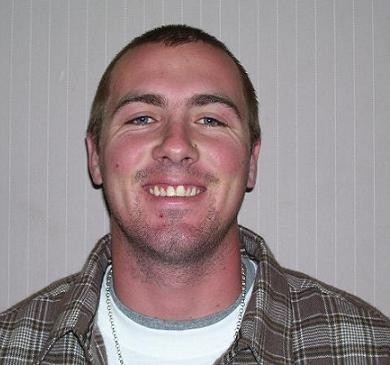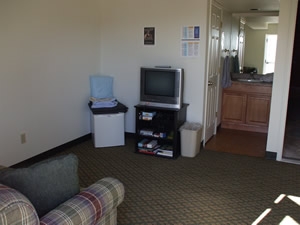San Juan County
San Juan County Probation
Chief Probation Officer
-
Tom Harms
Chief Probation Officer, Probation:ADA Coordinator6th Judicial DistrictArchuleta CountyLa Plata CountySan Juan CountyPrimary Emailthomas.harms@judicial.state.co.usPrimary Phone970-247-0982
Probation Programs in San Juan County
Adult Drug Court Program - La Plata County
Adult Drug Court Program - La Plata County
History:
In 20 years since the first Drug Court was founded, there has been more research published on the effects of Drug Courts than on virtually all other criminal justice programs combined. The scientific community put Drug Courts under a microscope and concluded that Drug Courts work. Better than jail or prison. Better than probation and treatment alone. Drug Courts significantly reduce drug use and crime and are more cost-effective than any other proven criminal justice strategy. The Adult Drug Court program in La Plata County was established in 2001 as one of the first Colorado Drug Courts.
Goals/Purposes:
The primary goal of the Drug Court program is to integrate substance abuse treatment, mental health treatment, intensive supervision and judicial oversight to promote public safety and individual responsibility. Drug Court holds participants accountable and helps develop the skills necessary to attain long term sobriety.
The Drug Court program reduces barriers to treatment by funding nearly 50% of the cost of treatment and substance monitoring.
Program Entry:
Offenders may be referred to the program by their attorney or a probation officer. Following the initial referral, offenders are screened by the Drug Court team. The team consists of the Drug Court Judge, Drug Court probation officer, a Deputy District Attorney, Treatment Providers, the defendant’s attorney and the Drug Court Coordinator.
Initial screening determines treatment needs and the willingness of the candidate to fully participate in Drug Court. If all parties agree that the candidate is accepted into Drug Court, the expectation is that treatment will begin immediately.
Program Structure:
The Drug Court program is structured in three phases, with each phase lasting for a minimum of 90 days.
- Phase I: Includes required intensive treatment, community service, drug and alcohol monitoring, weekly meetings with the Drug Court Probation officer, and appearances at Drug Court reviews twice per month.
- Phase II: Everything from Phase I with the following exceptions: meetings with the Drug Court Probation Officer and Court appearances are reduced in frequency. A payment schedule for court costs is established in this phase.
- Phase III: In this phase, treatment is completed, court costs are paid in full, community service is completed, and meetings with the Drug Court probation officer and court appearances are further reduced in frequency.
The program utilizes sanctions and rewards. Sanctions for violations may include a return to an earlier phase of the program, inpatient treatment, halfway house programs, mental health treatment, additional community service, additional drug/alcohol monitoring, increased self-help meetings, or incarceration. Rewards for program compliance may include reduced community service, reduced drug/alcohol testing, gift cards, verbal recognition in court, and permission to travel.
Drug Court Outcomes:
La Plata County Drug Court has experienced a 73% overall graduation rate (over the last 10 years). Most importantly, the successful participant enjoys a life of sobriety and is armed with the tools for a bright and positive future.
*A participant will receive a handbook with complete Drug Court details. This information is not meant to be a complete description of the Drug Court program.
Walk into any courtroom in America and you will hear two words that bring everyone to attention. As the judge takes the bench and the court officer loudly proclaims, "All rise," the courtroom quiets down and all stand, focused on our system of justice. But this command -- "all rise" -- carries with it an implicit and solemn promise: the promise that our judicial system will raise the quality of life for the people coming before it and for our community.
For the many addicted individuals who appear before the courts each year, this includes the promise that they will receive the treatment and other tools they need to change their lives. Because we know that whenever one person rises out of addiction and crime, we all rise as a community. When the intergenerational cycle of drug addiction in a family is broken and healing begins, we all rise. When a child is reunited with clean and sober parents, we all rise. Whether the charge is driving while impaired, theft, burglary, or any number of other addiction-driven offenses, we all rise when a Drug Court guides the offender past the chaos and wreckage and toward recovery.
“ALL RISE”
"When a court orders an addict to treatment instead of prison, we ALL RISE." - Martin Sheen
"When a Drug Court restores a broken family, we ALL RISE." - Slash
A Story from Drug Court:

As much as I hate to admit it, the Drug Court program is the only reason I am not writing this from prison right now. Before I entered the program, my life was pretty crazy. I probably do not need to mention that, because everyone that is in or thinking about going into the program is the same way. The difference is I could not see it, I was a pretty average college kid, or so I thought. I thought my alcohol abuse and drug use was completely normal for any college kid. Oh man was I wrong, everything was completely out of control and my life was going downhill faster than I could imagine.
When I first entered Drug Court, I thought it was the worst thing in the world, and let's just say my relationship with my probation officer was not very great. I hated her. I spent the first few months just going through the motions, waiting for my testing to go down a little bit so I could drink again. When the testing went down, I had a hot BA less than 48 hours later. Drug Court gave me a second chance. I spent 45 days in a treatment center in Alamosa, not very fun, I was one of four people there that were not straight out of prison, but man I learned that the last place in the world I want to go was prison. When I got back I made the best decision of my life - I decided to try and actually work the program. With the help of my probation officer and my counselor from Balance Counseling, my life made a complete 180. I got back in school and for the first time since sixth grade was keeping my GPA above a 3.5. This continued for about eight months, and then one day I got the cuffs put back on for something that had happened a year earlier.
Someone had worn a wire into my house when I had first started Drug Court. I guess my thought process was, hey I'm not on drugs anymore. If I sell them I'll make even more money. I was looking at 4-16 years in prison. Because the task force waited so long to bring up the case, my probation officer had been able to see a change in my attitude and a big change in my life. With the amount of time I had been doing everything right under my belt, my counselor and my probation officer went to bat for me, saying that I was on the right track and prison was not completely necessary for me. With their help, I got two years of probation on a distribution charge rather than four years in prison. I guess the point of my story is that if you are willing to accept the fact that you might have problems and are willing to change, the Drug Court program can really help.
My probation officer and I started off with a really rocky relationship. It is very clear to me now that her intentions have always been good, and if you actually work the program she does notice and will be there for you. If I had to do it all over again I wouldn't change a thing, the Drug Court program completely changed my life for the better and I will never forget the amount of help and support I received from my counselor, Mike Johnston, and my probation officer, Denise Bradford. I am living proof that the Drug Court program does work.
- Ex Drug Court client, Mark Johnson
Adult Sex Offender Management Program
Adult Sex Offender Management Program
Goals/Purposes:
The primary purpose of the district's sex offender management program is to ensure public safety. This is achieved through adherence to the guidelines for the supervision and management of sex offenders established by the Colorado Sex Offender Management Board.
The Probation Department endeavors to meet the primary goal above through the following specific activities:
- Initial Risk Assessment and Evaluation: The Probation Department advises the court after an offender has pled guilty or been found guilty, and before he/she is sentenced, as to whether the Department can manage the offender safely in the community. Assessment and evaluation is driven by the "Risk, Needs, and Responsivity" principles, which were first elucidated by James Bonta and Don Andrews, and which have been found to be effective in the selection of interventions to reduce offender recidivism. The model advocates the use of empirical research to identify "criminogenic" risk factors most strongly related to recidivism and to address those factors through treatment and other interventions ("criminal needs") in a manner suited to offender learning and other characteristics ("responsivity").
- Ongoing Risk Assessment and Evaluation: The Probation Officer engages in ongoing assessment, utilizing valid and reliable risk assessment instruments including the SONAR, throughout the course of probation supervision.
- Sex Offense Specific Treatment: An offender must complete a thorough course of sex offense specific treatment, as defined by the Colorado Sex Offender Management Board, to successfully complete his/her term of probation supervision. Adult treatment typically requires a minimum of four years, depending on the effort made by the offender, and includes work on assumption of accountability, completion of a history of acts of sexual misconduct, identification and revision of cognitive distortions and deviant sexual arousal, empathy training, social skills training, development of pro-social interests, social networks and activities, and other treatment modules. All adult sex offenders, upon completion of sex offender treatment, remain in an aftercare program throughout the remainder of their probation sentence.
- Ancillary Treatment: An offender may need to engage in other types of treatment, such as substance abuse treatment or mental health treatment, to reduce risk, depending on needs identified through evaluation and assessment.
- Polygraphy: Adult sex offenders are required by state standards to undergo polygraph examination at least every six months during the course of probation supervision to ensure compliance with probation terms and conditions, to clarify specific questions about past or current behaviors, and to ensure complete disclosure of sexual misconduct prior to placement on probation.
- Monitoring of Compliance with Terms and Conditions of Probation: Adult sex offenders must follow 17 standard terms and conditions of probation, and an additional 24 terms and conditions of probation specific to sex offenders. These conditions include avoidance of minors and places or events where minors congregate; treatment responsibilities; computer use restrictions; requirements for genetic marker testing and sex offender registration; requirements for informing the supervising probation officer regarding relationship, employment, and residential status; and others. Monitoring frequently includes curfew requirements or requirements for an offender to call in his/her location/activities. It also includes face-to-face contact at the Probation Department, or at various other sites, including work sites or home.
- Community Supervisor Program: The Probation Department and the local treatment provider, in conjunction, provide quarterly Community Supervisor Trainings for members of an offender's support network (e.g., spouses, adult children, ministers, employers, friends, etc.). These individuals, after successfully completing the training, are then designated as "community supervisors" for the offender and may accompany the offender to events such as church services, shopping, or entertainment activities while ensuring the offender's compliance with supervision conditions.
- Registration: All adult sex offenders are required by state statute to register as sex offenders throughout their terms of probation supervision, and for varying periods of time after completion of probation, subject to state statute and judicial review.
Domestic Violence Offender Management
Domestic Violence Offender Management
The Sixth Judicial District Probation Department created specialized services for domestic violence cases in 1998, through a Violence Against Women Act grant program. Services included free domestic violence offender evaluation within the probation department. The local system was superseded by new treatment standards at the state level; however, presentence investigations, which include evidence-based risk assessment and management, continue to be provided for all domestic violence cases.
For additional information about state requirements for the management of domestic violence offenders, please see the Colorado Domestic Violence Offender Management Board website.
Juvenile Drug Court Program - La Plata County
Juvenile Drug Court Program - La Plata County
The Juvenile Drug Court Program in La Plata serves juvenile offenders who are appropriate for the program with a phased, structured, and monitored program similar to that utilized for the adult-specialized court programs.
6th JD Temporary Juvenile Holding Facility
6th JD Temporary Juvenile Holding Facility
During the summer of 2008, the 6th Judicial District collaborated with Southwest Colorado Community Corrections to establish a temporary, non-secure facility for temporary placement of juveniles being held by law enforcement authority.
The facility addresses a community need for additional space in which juveniles may be held in a safe and secure environment pending court appearances, placement, or the formulation of containment plans adequate to ensure juvenile and community safety. The photographs below depict the inside of the facility, and the view from the facility.


Useful Public Service Program - La Plata County
Useful Public Service Program - La Plata County
Program Purposes and Goals: The Useful Public Service Program is a form of "restorative justice," in which offenders are given an opportunity to participate in productive activities that not only benefit the community at large, but also aim to forge a stronger connection between the offender and the community. The program places and supervises offenders who have been ordered by the courts to perform public service pursuant to Colorado Revised Statutes. Public service is a sentencing alternative that my be imposed by the courts as a condition of probation, or in some instances, in lieu of jail time.
Program Registration: When an offender is sentenced to complete Useful Public Service, he or she must report to the Useful Public Service office in the courthouse in order to register and to obtain a work assignment. Intake interviews are conducted in and effort to obtain a better understanding of the offender's interests and of any special skills the offender may be able to offer to the community. All participants are assessed a fee by the court, which assists in the maintenance of the program and provides a medical and liability policy for the participant during the performance of public service.
Program Opportunities: The 6th Judicial District's Useful Public Service Office maintains contact with over fifty nonprofit organizations, as well as with government agencies, churches, Native American organizations, and school districts in need of volunteer services. In addition, the office has implemented a variety of innovative programs to address the needs of elderly, disabled, and financially strained individuals in the county.
For example, the Useful Public Service Firewood Program allows offenders to deliver cords of wood to those in need, in an effort to offset rising heating costs. Additionally, local nonprofits can contact the Useful Public Service Office if they become aware of individuals with specific needs for help with chores such as moving, cleaning, or snow-shoveling.
Adult Behavioral Health Court - La Plata County
Adult Behavioral Health Court - La Plata County
The Adult Behavioral Health Court, created in La Plata County in April of 2011, provides a structured, phased program in which a team works to coordinate treatment and supervision for criminal cases in which defendants have significant mental health treatment needs that have contributed to the conduct with which they were charged.
The Behavioral Health Court team includes the county court judge, a probation officer, mental health and substance abuse treatment providers, a deputy district attorney, a public defender, and law enforcement personnel.
Probation FAQs
We've compiled the answers to many commonly asked questions about probation. Go to Probation FAQs.
 Colorado Judicial Branch
Colorado Judicial Branch
